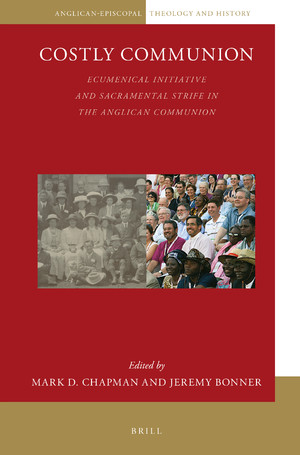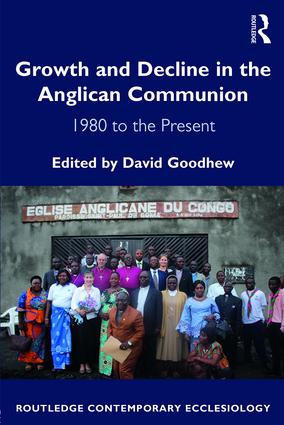Pittsburgh (TEC) Convention: Day 1 (October 15)
A year ago I declared I was done with ecclesiastical journalism and you all breathed a sigh of relief. And here I am back again!
As some readers know I was a delegate to both conventions in 2009 and now - as an alternate elevated to deputy - I'm once again functioning in my bifurcated ACNA/TEC guise, rather like something out of Kafka. Last year, even though the sponsor of a resolution that encouraged parish study of the Anglican Covenant (which passed unanimously), I posted nothing on the TEC convention, largely because there wasn't much happening. This year I feel more inclined to offer some commentary.
Many readers will naturally incline to the "Can anything good come out of Nazareth" school of analysis when it comes to a "rump" TEC Diocese. I'm not sure that this holds even in Fort Worth or San Joaquin, but it definitely doesn't hold in Pittsburgh. Treatment of some conservative clergy on the TEC side has been less than charitable, before and after realignment. I didn't like it then and I don't like it now; in the matter of means vs. ends, I dislike it that the means employed for the end of ACNA are less than perfect.
A case in point for the ambiguity of TEC in post-realignment Pittsburgh was the admission of a new parish - All Saints, Bridgeville - to the diocese. All Saints is led by a crusty - but very loveable - bi-vocational lawyer, Dick Pollard (whose wife Susan is active in the ACNA Diocese!). It's rare to see the good Fr. Pollard emotional, but this one of those moments, as he commended all who had made the worshiping community possible (the membership is about one-third refugees from TEC parishes, one-third refugees from ACNA parishes and the rest from non-Anglican backgrounds). "If you do God's work in God's way, people provide," Dick reminded us, "and today we are giving Him the thanks and the praise."
Other news included expressions of good wishes by Bishop Price to contemporaneous TEC conventions in San Joaquin and Quincy, as well as to retired diocesan Alden Hathaway, the adoption of a new district system with just four districts (reflecting the downturn in active parishes) and the news that Trinity School for Ministry had sponsored the evening refreshments!
But perhaps most interesting was Bishop Price's address, which you can see in its entirety here. Pittsburgh is "better off," he declared, than our counterparts in California, Illinois and Texas, for which we must be "eternally grateful" to the rector of Calvary Church (not sure if a little irony had slipped in here). Furthermore, the prompt deposition of Bishop Duncan meant that the Presiding Bishop "did not have to come to Pittsburgh to convene a special convention" (I know she was present at the other gatherings but I didn't realize she actually convened them). Much more to the point, Pittsburgh had "more parishes, clergy and laity who chose to remain loyal to the Episcopal Church . . . representing a wide diversity of thought and action" (now that is true and should not be sneered at).
Some graceful allusions to ACNA followed; ecumenical and cathedral interaction with the new Archbishop (who has "greater visibility and clout on the global scene" than other ACNA bishops) and a "relatively cooperative" approach to turning over diocesan records. Then a reference to the "distrust, fear and suspicion" that "surrounded life in this diocese leading up to the 2008 split." Now I used to be utterly skeptical about such observations and I know there are those quite happy to fight the liberal corner in southwestern Pennsylvania, but I now know some of the "Rob Eatons" of Pittsburgh and how they were treated when they failed to show adequate loyalty to their bishop, so I have to reserve judgment. By the same token, I can also attest - as a historian - that Pittsburgh liberals in the 1960s and 1970s seem to have been fairly efficient machine politicians too.
So the Diocese now needs to look ahead. To an eighteenth month process of selecting a new bishop; to a parish-by-parish study of the Anglican Covenant in preparation for the drafting of a diocesan response (so my resolution has actually produced a response). An insistence that the Diocese of Pittsburgh "must make its own, unique voice heard," for we are listened to by the Presiding Bishop and the Episcopal Church (here, I must admit, my eyebrows rose a trifle).
The appointment of Jay Geisler of St. Stephen's, McKeesport, as Canon for Formation, building relationships with Trinity School for Ministry and Pittsburgh Theological Seminary. An inspired choice this - last year, Jay led the Lenten Study at the realigned Church of the Ascension.
"May we thank God for his many blessing upon us, and for the opportunity to work together in this piece of the Kingdom of Heaven called Pittsburgh." No argument here.
Ah well. Let's see what tomorrow brings.
And I have to do this all over again in two weeks!










No comments:
Post a Comment